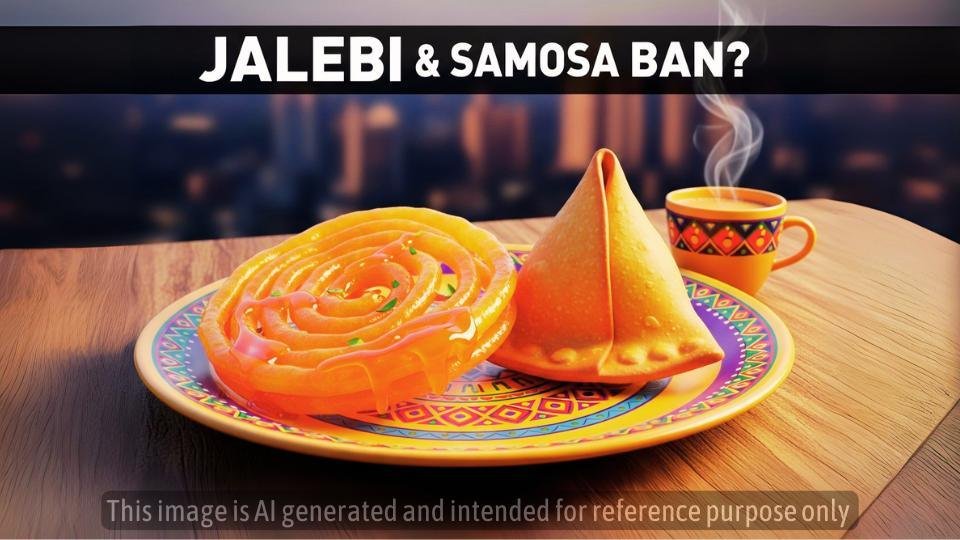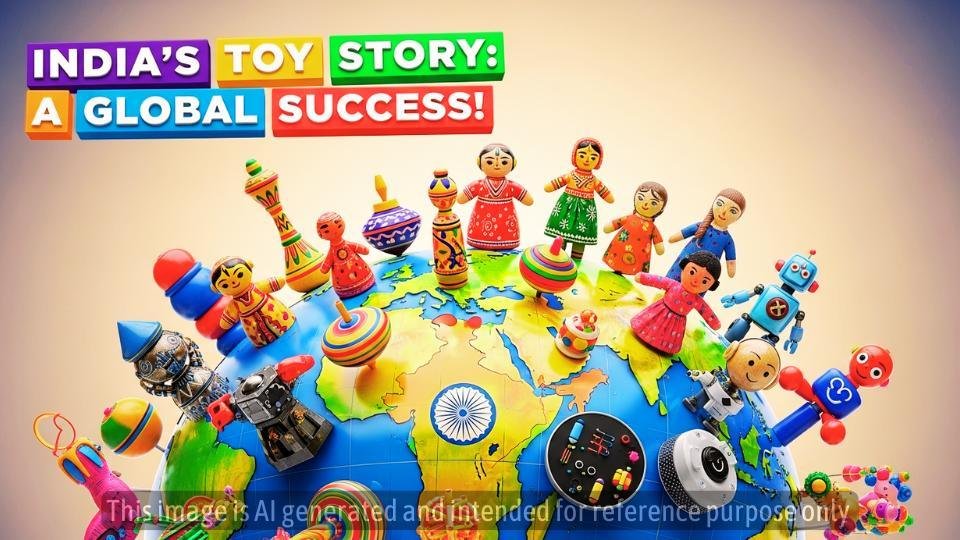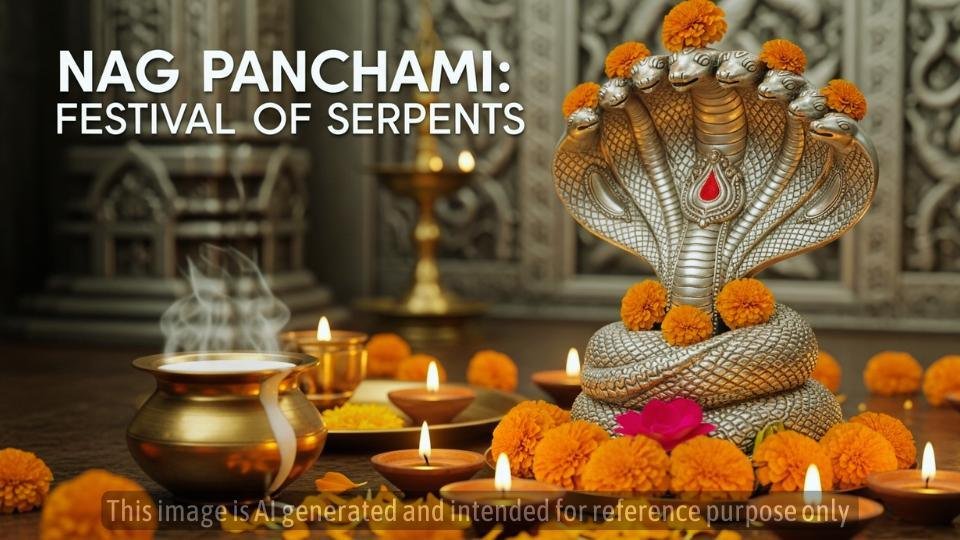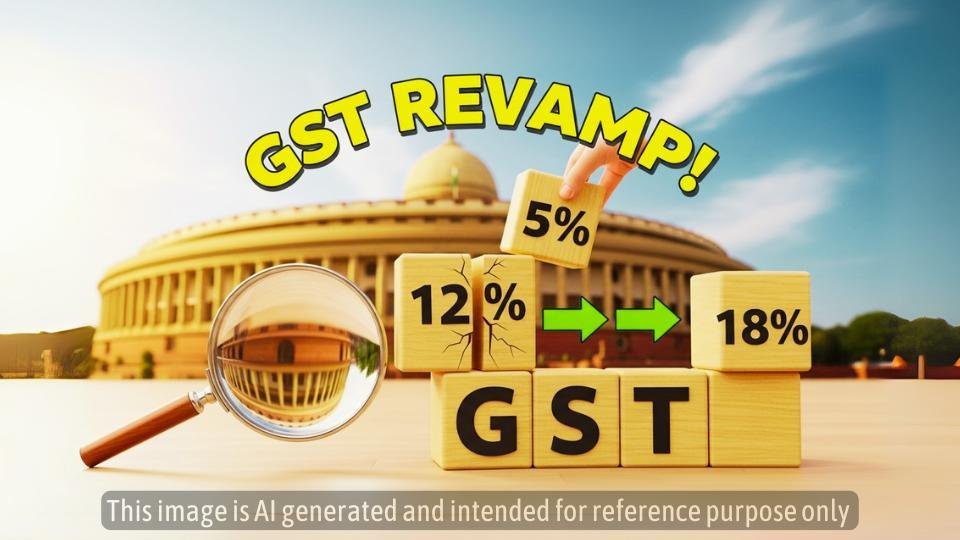कृपया इसे हिंदी में पढ़ने के लिए यहाँ क्लिक करें
In an age where a single spark of misinformation can ignite a forest fire online, the recent news about a potential government ban on two of India’s most beloved snacks – the savory samosa and the syrupy jalebi – sent shockwaves across the nation. For a few days, it felt like a national treasure was under threat. But fear not! As your trusted source for news that is researched, verified, and presented with all the facts, we’re here to tell you to keep your evening chai-samosa plans. The government is not banning jalebis and samosas.
The story is much bigger, more nuanced, and, frankly, more important than a simple ban. It’s a story about health, awareness, and the gentle nudge towards a healthier future for all Indians. So, let’s peel back the layers of this crunchy, savory, and sweet story.
The Spark: Where Did the “Ban” Rumor Start?
The confusion began when reports surfaced about a new directive from the Union Health Ministry. These initial, and somewhat misleading, reports suggested that warning labels would be placed on individual food items like samosas and jalebis, much like the warnings on cigarette packs. This created an uproar, with many fearing the end of their favorite street foods. The news spread like wildfire on social media, with people expressing disbelief and even outrage.
The Real Story: An Advisory, Not a Prohibition
The Union Health Ministry has since clarified that the reports of a ban or individual warning labels are “misleading, incorrect, and baseless”. The reality is this: the government has issued an advisory, not a ban, to promote healthier eating habits, particularly in workplaces like government offices, hospitals, and other institutions.
Here’s the breakdown of what the advisory actually entails:
- Awareness Boards: The core of the initiative is the installation of “Sugar and Oil Boards” in common areas like canteens, lobbies, and meeting rooms. These boards will display information about the high-fat and high-sugar content in a variety of foods, not just Indian snacks.
- Informing, Not Forbidding: The goal is to make people aware of the “hidden” fats and sugars in the food they consume. A senior diabetologist, Dr. Sunil Gupta, put it perfectly: “This is not about banning food… But if people knew that one gulab jamun might contain five teaspoons of sugar, they might think twice before going for seconds”.
- A Gentle Nudge: This initiative is what experts call a “behavioural nudge.” It’s a subtle, non-restrictive way to encourage people to make healthier choices without taking away their freedom to choose.
The campaign has already started at institutions like AIIMS Nagpur, where cafeterias are putting up these informational boards.
A Pinch of Backstory: Why Now?
This move isn’t happening in a vacuum. It’s part of a larger national effort to combat a growing health crisis. Lifestyle-related, non-communicable diseases like diabetes, heart disease, and hypertension are on the rise in India. The government’s note linked this move to the country’s growing obesity crisis, with projections indicating that by 2050, a significant portion of the population could be overweight or obese.
This initiative aligns with Prime Minister Narendra Modi’s “Fit India” campaign, which aims to encourage a healthier and more active lifestyle for all citizens. It is a proactive step to safeguard the nation’s health by promoting moderation and informed choices.
A Humorous Twist and a Political Angle
The controversy also had its lighter and more political moments. The idea of a “warning” on a samosa, a snack that’s an integral part of everything from rainy day cravings to office parties, was met with humor and satire online.
It also sparked a political debate. West Bengal Chief Minister Mamata Banerjee publicly rejected the idea of any ban, stating, “We are not interfering in every matter. We shall not implement this…Let us not interfere with people’s food habits.” This added a layer of political drama to the food-focused discussion.
Social Message: The Wisdom in Our Plates
This entire episode serves as a powerful reminder of the wisdom embedded in our own traditions. Indian cuisine is incredibly diverse and balanced. Our ancestors knew the importance of moderation. This is not about demonizing traditional snacks that bring us joy and are woven into our cultural fabric. It is about reconnecting with the principle of “at an opportune time” and in moderation. It’s about choosing a baked samosa over a fried one sometimes, or sharing a jalebi instead of having three.
This is a call to be more mindful of what we eat, not to stop eating the foods we love. It’s a national conversation about health that uses our most beloved snacks as a starting point.
Disclaimer: This article is for informational and educational purposes only and is based on publicly available information, including advisories from the Union Health Ministry of India as of July 2025. The content provided is not intended to be a substitute for professional medical advice, diagnosis, or treatment. Always seek the advice of your physician or other qualified health provider with any questions you may have regarding a medical condition or dietary changes. The author and publisher of this article are not responsible for any errors or omissions, or for any actions taken based on the information provided in this article. The situation and advisories mentioned are subject to change, and readers are encouraged to consult official government sources for the latest updates.







Leave a Reply